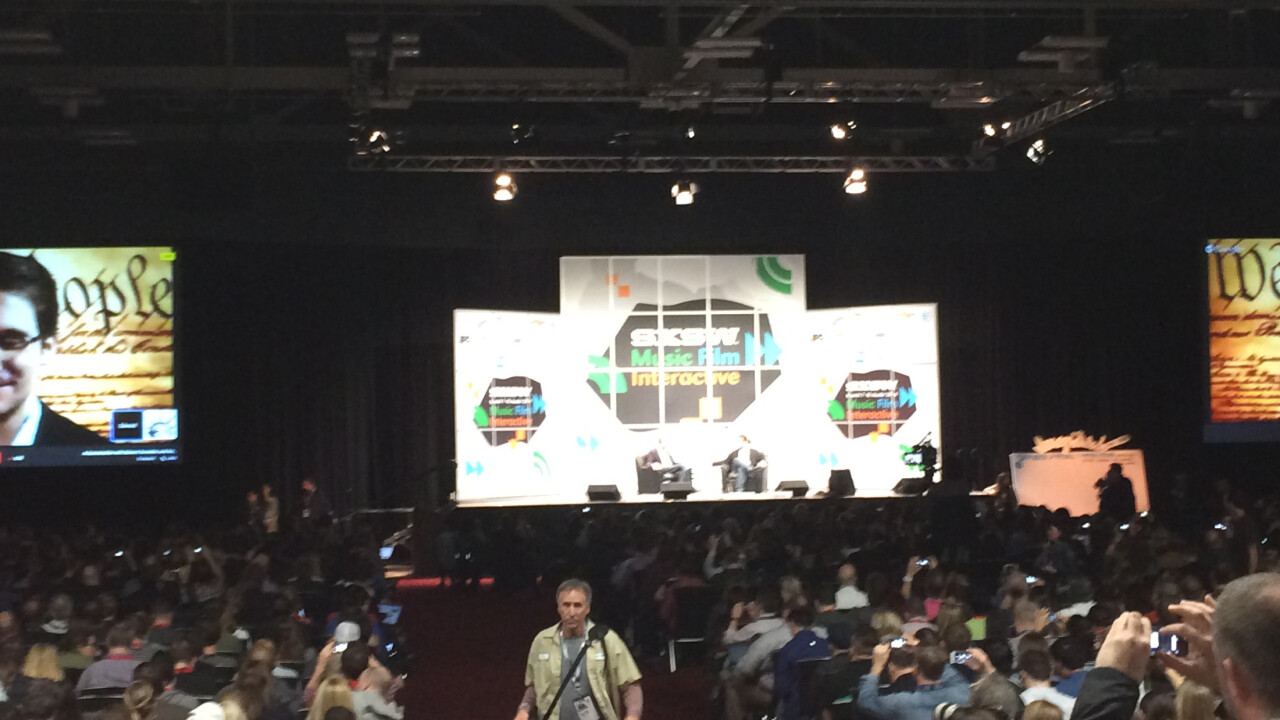
The SXSW team will have drawn the envy of conference organizers around the world today after NSA whistleblower Edward Snowden took part in a ‘virtual conversation’ via video link.
Speaking via a Google Hangout and apparently routed through seven proxies from his current location in Russia, Snowden said that he’d chosen to speak first to the technology community rather than the policy community because security services are “setting fire to the future of the Internet” and attendees at SXSW are “firefighters.”
Snowden said that his actions were in line with the oath he took as an NSA contractor to defend the constitution. “Would I do this again? The answer is absolutely yes. Regardless of what happens to me, this is something we had a right to know. I took an oath to support and defend the constitution, and I saw the constitution was violated on a massive scale.”
“When I went public with this, it wasn’t so I could single-handedly change the government, tell them what to do and override what the public thinks is proper. What I wanted to do was to inform the public, so they could make a decision [and] provide their consent for what we should be doing.”
Snowden discussed the need for more accessible secure communication tools. Referencing journalist Glenn Greenwald’s famous difficulty to install PGP when beginning discussions with Snowden, he said that the next generation of these apps need to “pass the Greenwald test… How can we enforce these protections in a simple, cheap and effective way that’s invisible to users?”
“End-to-end encryption, where it’s from my computer directly to your computer, makes mass surveillance impossible at the network level without a crypto-breaker – and they are incredibly rare, normally don’t work and are very expensive,” said Snowden.
“If they want to gather somebody’s communications, they have to target them specifically. They can’t just target everybody all the time and then when they want to read your stuff they go back in a time machine and say ‘what did they say in 2006?’ They can’t pitch exploits at every computer in the world without getting caught. That’s the value of end-to-end encryption and that’s what we need to be thinking about.”
Snowden criticized the “lack of focus” in monitoring everyone’s communication rather than focusing on suspects because it causes the security services to misdirect their attention away from real crimes such as last year’s Boston Marathon bombing.
Responding to a question emailed in from Tim Berners-Lee, creator of the World Wide Web, Snowden decried the US government’s lack of interest in holding the NSA to account. “We really need public advocates. We need public representatives. We need public oversight. Some way for trusted public figures… to advocate for us and to protect the structure and make sure it’s being fairly applied. We need a watchdog that watches congress.”
Snowden encouraged individuals to use TOR for their online communications “TOR, is a mixed routing network. Which is very important because it’s encrypted from the user, through the ISP, to the end of a sort of cloud – a network of browsers that you go through. And because of this, you’re asking your telecommunications provider to no longer spy on you by default, the way they do now, today, when you go to any website.”
He encouraged the use of encrypted hardware and software in order to avoid getting caught up in widespread ‘hoovering’ up of data.
There’s no doubt that Snowden was talking to a largely sympathetic crowd at SXSW and therefore had it largely easy in terms of the questions he was asked, but it was nevertheless an interesting and engaging session and a real highlight of this year’s conference.
(Nick Summers contributed to this report.)
Get the TNW newsletter
Get the most important tech news in your inbox each week.





